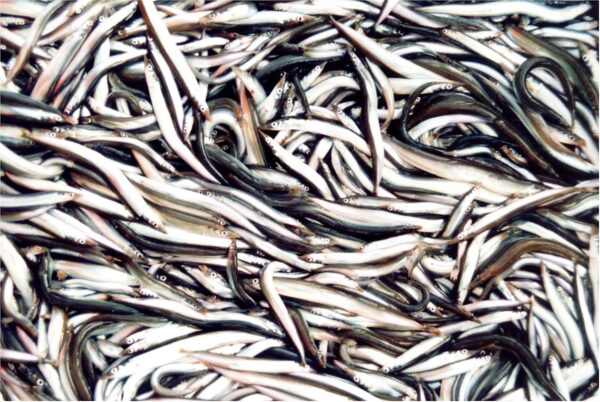The Danish fishing industry has raised concerns over the UK’s decision to close sandeel fishing in its waters, particularly in the Dogger Bank region.
England and Scotland announced a prohibition on commercial sandeel fishing in UK waters of the North Sea (Area 4) from 2024, a move conservationists say will be a “game changer” for saving the UK’s globally important seabird colonies.
Fishing associations in Denmark argue that the UK’s move violates the UK-EU Trade and Cooperation Agreement (TCA) and say their members heavily rely on the English section of the Dogger Bank. Commercial fishing for sandeel is currently carried out entirely by European vessels. In recognition of the importance of the species to marine biodiversity, no fishing quota has been allocated to UK vessels since 2021.
 © Crown copyright, Marine Scotland
© Crown copyright, Marine Scotland
Sandeels – small, eel-like fish which typically live in vast shoals – are a vital food source for some of the UK’s most vulnerable seabirds and marine mammals, like puffin, kittiwakes, and harbour porpoises, as well as commercially important fish species like haddock and whiting.
The International Council for the Exploration of the Sea (ICES) recently provided scientific recommendations for sandeel fishing quotas. ICES advised that, when applying the Maximum Sustainable Yield (MSY) approach, catches in 2024 should not exceed 132,315 tonnes in Sandeel Area 1r (central and southern North Sea, Dogger Bank) and 35,925 tonnes in Sandeel Area 2r (central and southern North Sea). Zero catches were recommended for other areas of the North Sea, Skagerrak, and Kattegat.
A joint industry statement
The Danish Pelagic Producers’ Organisation, the Danish Fisheries Association and Marine Ingredients issued a joint statement expressing deep concern over the UK’s decision to close fishing grounds.
The statement said: “The United Kingdom has announced the total closure of fishing grounds in British waters, where up to 75% of fishing normally takes place. The situation is unacceptable and very serious, says the fishing industry and the fishmeal industry.”
“….despite the fact that the sandeel stock is doing well, Great Britain has decided to ban fishing for sandeel in British waters. This is a scandal…”
They argue that the closure undermines the scientific basis for sustainable fishing and is a violation of the Brexit agreement as the sandeel population is well managed.
Brexit – “a deal is a deal”
Jens Schneider Rasmussen, Chairman of Denmark’s Pelagic Producer Organisation said “The UK’s closure of the sandeel fishery has been decided in a process devoid of independent scientific advice and proportionality. The decision clearly violates the Brexit agreement made on December 24, 2020. Where I come from, a deal is a deal. If you break a deal, there are consequences”. The closure would cost the Danish fishing industry €18m annually, Rasmussen said, and would hit the processing industry.
As written in the Financial Times, “This is a humiliation for the EU,” said Svend-Erik Andersen, chair of the Danish Fishermen’s Association. “With the Brexit agreement, Danish fishermen paid dearly for access to British waters. Now, the UK is breaking the agreement. It is beyond criticism.”
At the time of the announcement, Oceana UK’s executive director, Hugo Tagholm, speaking to Oceanographic, said: “The new ban on industrial fishing for sandeels is unequivocally the right decision and should be applauded. Sandeels are tiny fish – but their impact is vast.”
“The next steps are to extend this ban beyond the North Sea to throughout UK waters, working in partnership with the devolved administrations.”
The UK’s decision to ban sandeel fishing is set to take effect from April 1, which coincides with the typical start of sandeel fishing for Danish fishermen, industry representatives said.
- This story was amended on 14 March 20024 to include further links to our original sandeel closure stories and to reference NGO comment.